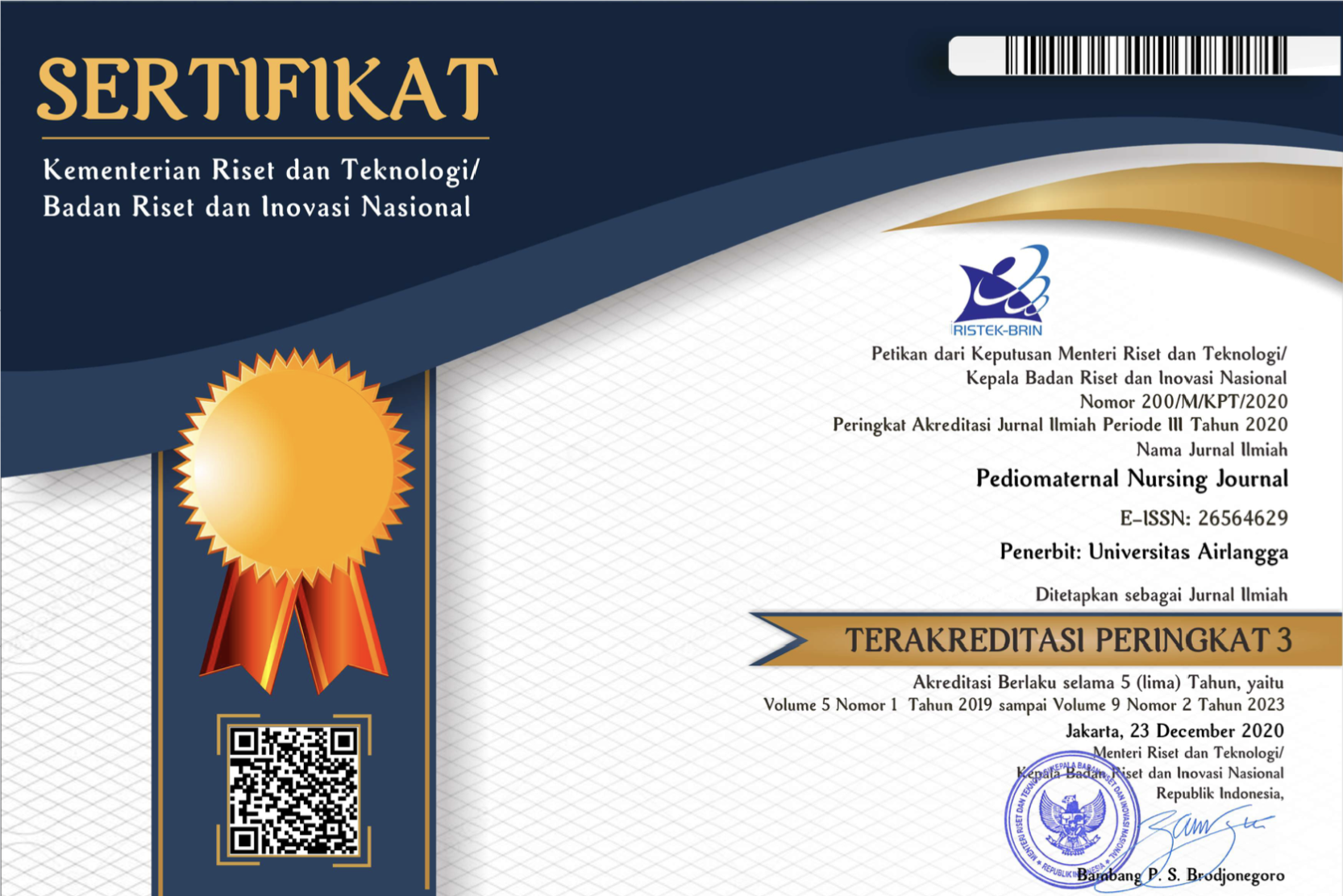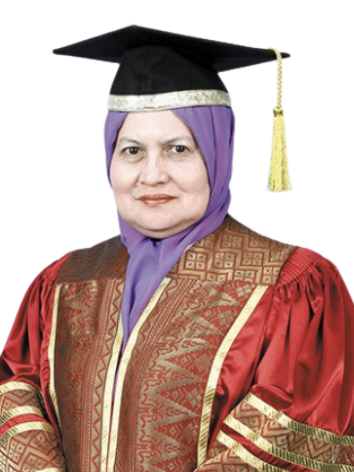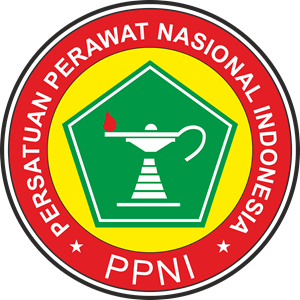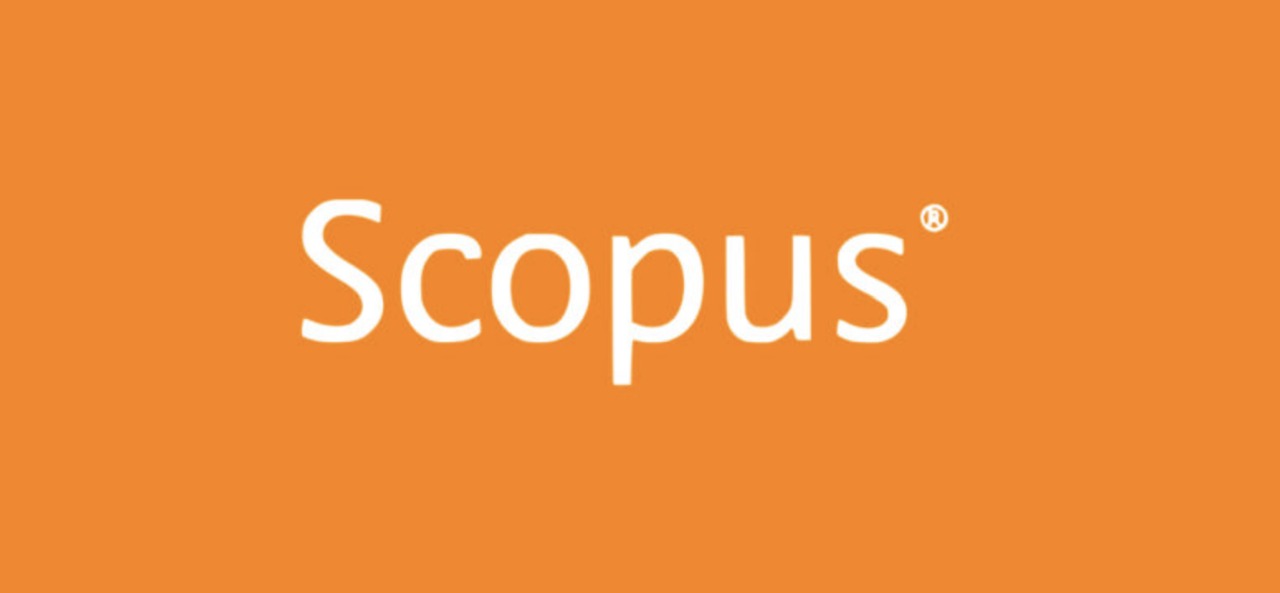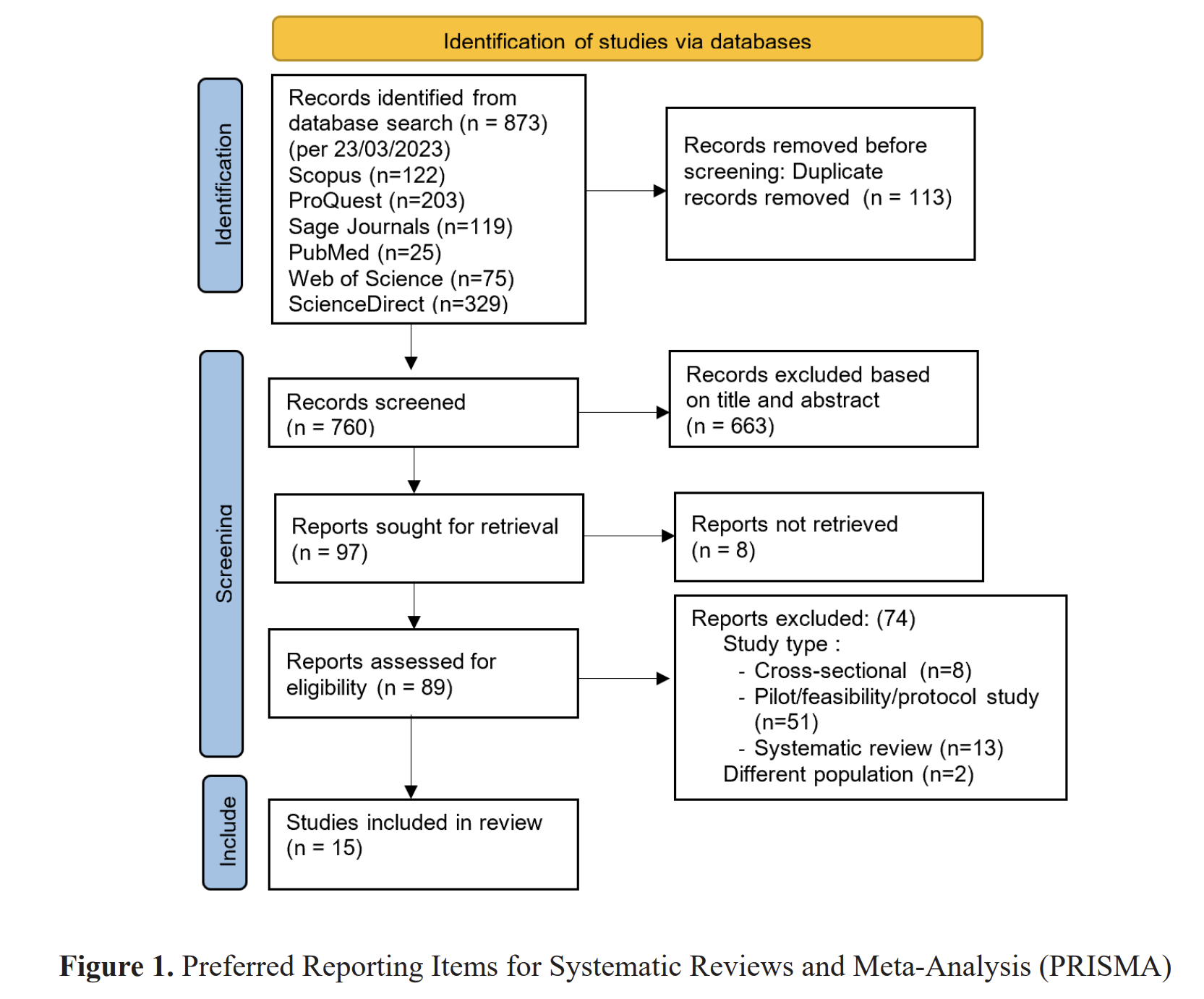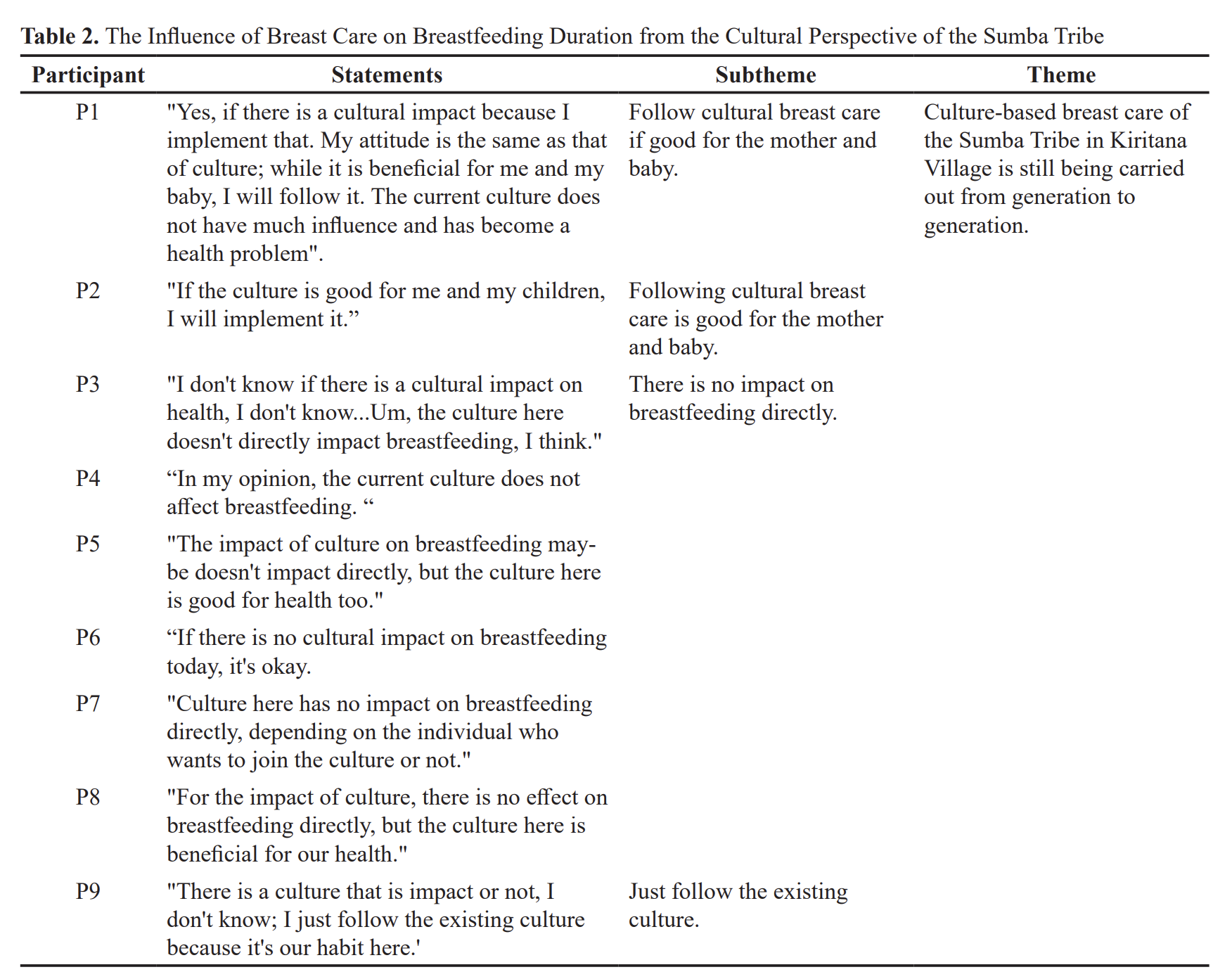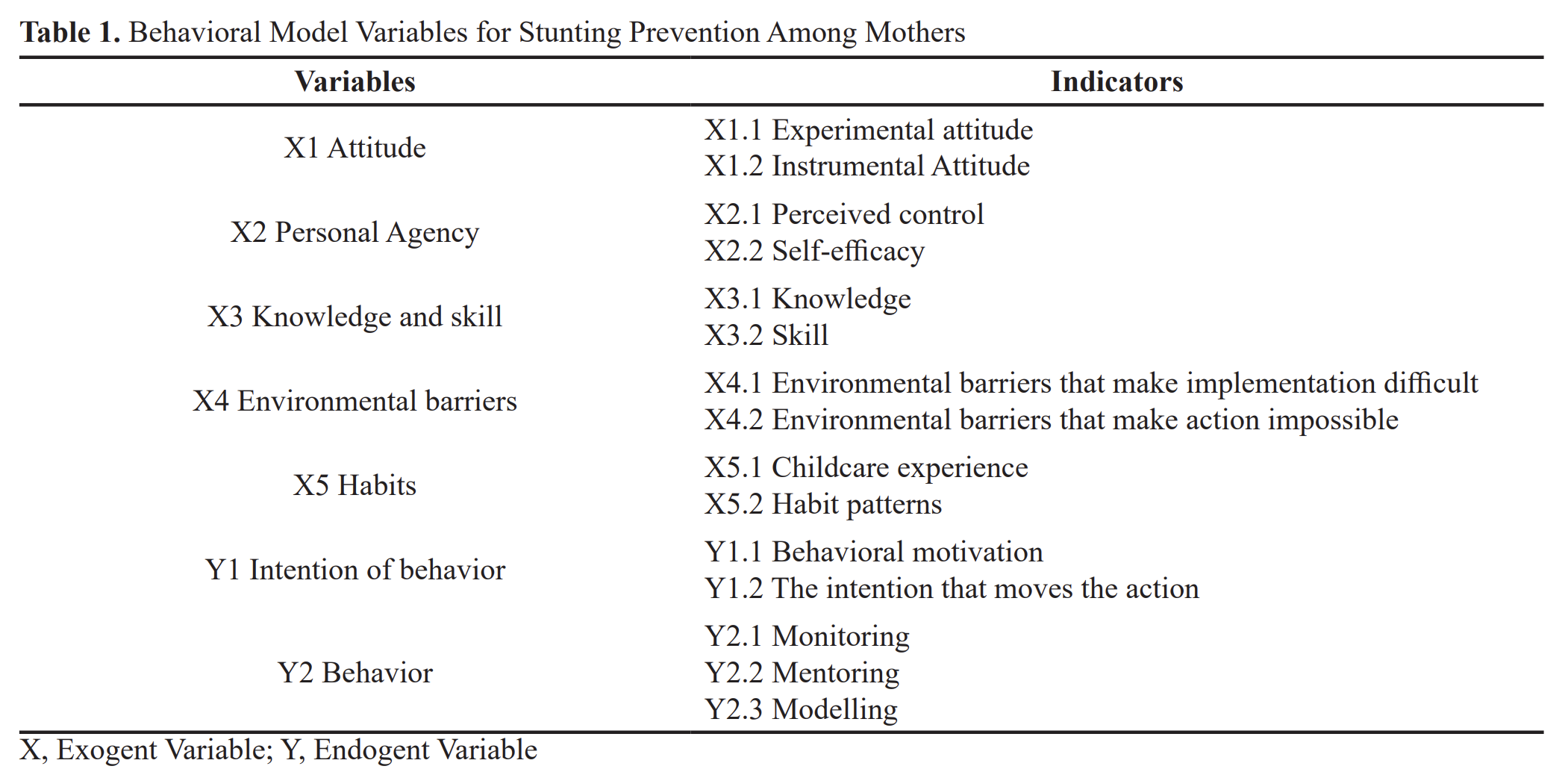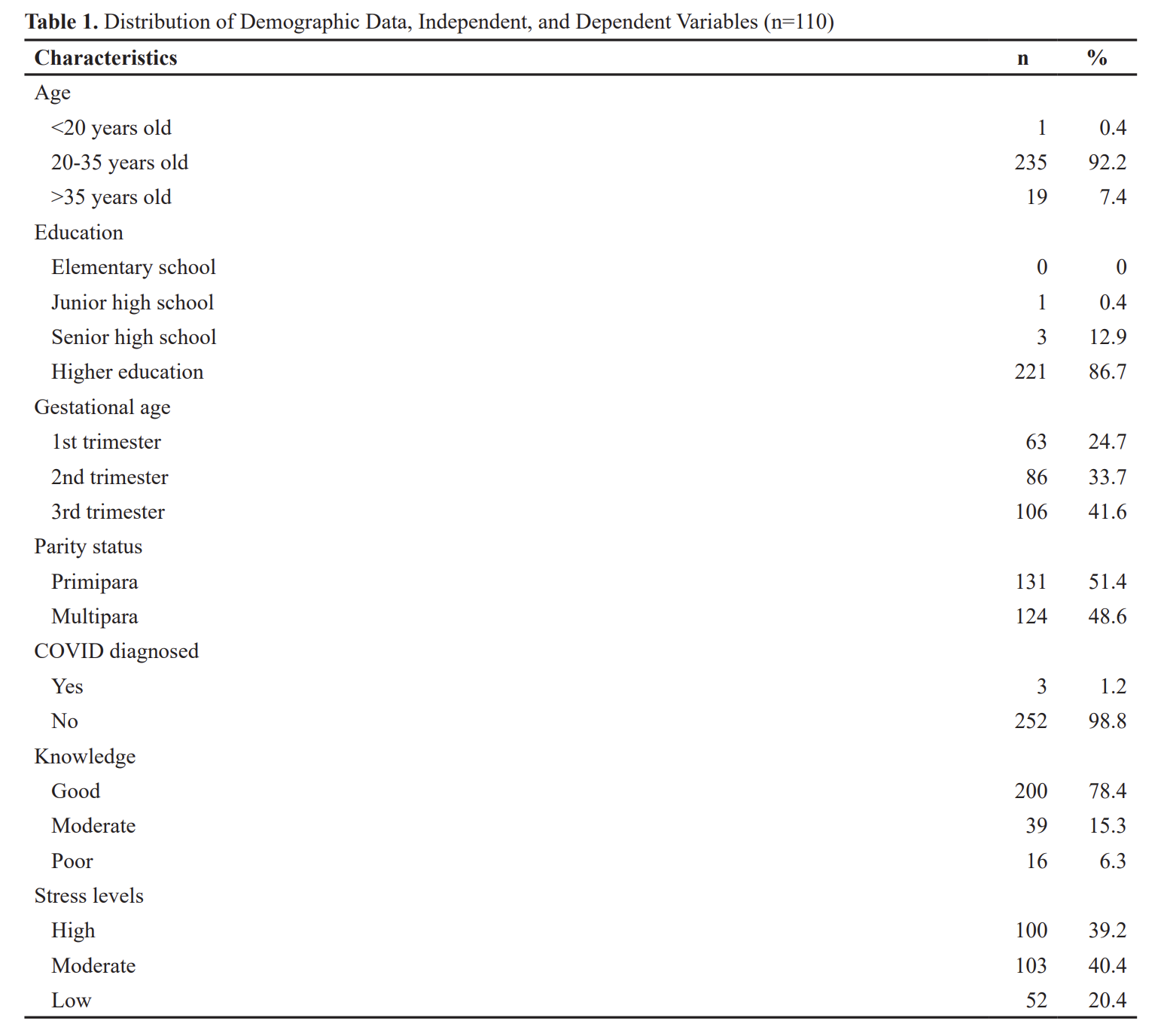The Influence of Transcultural Nursing Based on Health Education on Knowledge, Attitude, Mother Actions and Family Support among Breastfeeding Mother
Downloads
Introduction:Providing additional food other than breast milk before 2-year-old babies in Kupang City are babies given "regal" biscuits, "milcuit" biscuits, and "banana" s because the baby does not feel hungry. Providing "regal" biscuits, "milna" and "banana" biscuits as a complement to give breastfeeding before the age of 2 years because parents believe these biscuits can eliminate hunger for the baby. The purpose of this study was to explain the effect of Transcultural Nursing-based health education on knowledge, attitudes, actions of mothers, and family support in breastfeeding.
Methods: The design of this study was a Pre-Experimental study using quantitative data. Samples of 30 breastfeeding mothers who visited the Bakunase Public Health Center in Kupang City of East Nusa Tenggara and were obtained using the total sampling technique. Data obtained from the knowledge questionnaire, attitude questionnaire, action questionnaire, and social and family support questionnaire were then analyzed using the Wilcoxon statistical test.
Results: The results showed that there was an influence of transcultural nursing-based health education on knowledge, attitudes, mother actions, social and family support in breastfeeding with a significant value of p=0.000.
Conclusion: Transcultural nursing-based health education influences maternal knowledge, maternal attitudes, and family support for mothers in breastfeeding. Subsequent researchers can then carry out transcultural nursing-based health education research on different targets. They can analyze factors related to knowledge, attitudes, actions, and family support for nursing mothers.
Choiriyah, M., Hapsar, E. D. and Lismidiati, W. (2016) ‘Tradisi dan Lingkungan Sosial Memengaruhi Dukungan Menyusui pada Bayi Berat Badan Lahir Rendah di Kota Malang Tradition and Social Environment Influence Breastfeeding Support on Low Birthweight in Malang', World Health Organization, 51(6), pp. 1–99. doi: 10.1037/0022-3514.51.6.1173.
Dusdieker, L. A. N. D. L. (1999) 'The Iowa Infant Feeding Attitude Scale : Analysis of Reliability and Validity1 The Iowa Infant Feeding Attitude Scale : Analysis of Reliability and Validity", (December 2015). doi: 10.1111/j.1559-1816.1999.tb00115.x.
Hastuti, B. woro, Machfudz, S. and Febriana, T. B. (2015) ‘Hubungan Pengalaman Menyusui dan Tingkat Pendidikan ibu dengan Pemberian ASI Ekslusif di Kelurahan Barukan, Kecamatan Manisrenggo, kabupaten Klaten', 6(4), pp. 179–187.
Hervilia, D., Dhini and Munifa (2016) ‘Pandangan Sosial Budaya terhadap ASI Eksklusif di Wilayah Panarung Palangkaraya', Indonesian Journal of Human Nutrition, Vol. 3(No. 1), pp. 63–70. doi: 2355-3987.
Indonesian Ministry of Health (2018) Profil Kesehatan Indonesia , 2017, Kementerian Kesehatan Republik Indonesia.
Jones, K. M. et al. (2015) 'Racial and Ethnic Disparities in Breastfeeding 1,2 1', 10(4), pp. 186–196. doi: 10.1089/bfm.2014.0152.
Kadir, N. A. (2014) ‘Menelusuri Akar Masalah Rendahnya Persentase Pemberian Asi Eksklusif Di Indonesia', Al-Hikmah Journal for Religious Studies, 15(1), pp. 114–125.
Kemenkes (2018) ‘info DATIN (Pusat Data dan Informasi Kementrian RI)', kementerian Kesehatan RI, pp. 1–7.
Kementerian Kesehatan Republik Indonesia (2019) ‘Profil Kesehatan Indonesia 2018 [Indonesia Health Profile 2018]', p. 207.
Saputro, K. Z. (2018) ‘Memahami Ciri dan Tugas Perkembangan Masa Remaja', Aplikasia: Jurnal Aplikasi Ilmu-ilmu Agama, 17(1), p. 25. doi: 10.14421/aplikasia.v17i1.1362.
Utami, F. S. (2018) ‘Translasi dan validasi iowa infant feeding attitude scale di indonesia', Jurnal Kebidanan dan Keperawatan Aisyiyah, 12(1), pp. 103–108. doi: 10.31101/jkk.132.
Vijayalakshmi, P. (2015) 'Knowledge, attitudes, and breast feeding practices of postnatal mothers: A cross sectional survey', 9(4).
Copyright (c) 2020 Yulia Meiliany Naragale, Tiyas Kusumaningrum, Retnayu Pradanie

This work is licensed under a Creative Commons Attribution 4.0 International License.
1. The journal allows the author to hold the copyright of the article without restrictions.
2. The journal allows the author(s) to retain publishing rights without restrictions.
3. The legal formal aspect of journal publication accessibility refers to Creative Commons Attribution (CC BY).

